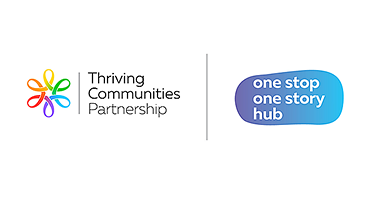Help & support
Your safety is our priority. If you’re not feeling safe, please call 000.
At CommBank, we believe in a brighter future for all. That’s why we have CommBank Next Chapter – a bank-wide commitment to help end financial abuse and support people on their road to long-term financial independence.
Through this commitment, we have:
Our dedicated Next Chapter Team can provide free and confidential support and referrals by connecting you with a range of specialist services. This support is available to people of all genders and sexualities.
Reach out to the Next Chapter Team
Contact the Next Chapter Team on 1800 222 387, Monday to Friday, 9am-6pm (Sydney/Melbourne time), excluding public holidays. An interpreter can be arranged to assist you.
If it’s difficult for you to chat over the phone, CommBank customers can contact the Next Chapter Team through online chat (Ceba) in the CommBank app.
Financial abuse is one of the most common forms of domestic violence and coercive control in Australia. In fact, almost 40% of the adult population have experienced or know someone who has experienced financial abuse.1
It happens when money is used to gain control over a partner, and is one of the most powerful ways to keep someone trapped in an abusive relationship.
Some of the signs may include:
Financial abuse is one of the most common forms of domestic violence and coercive control in Australia. In fact, almost 40% of the adult population have experienced or know someone who has experienced financial abuse.1
It happens when money is used to gain control over a partner, and is one of the most powerful ways to keep someone trapped in an abusive relationship.
Some of the signs may include:
Almost 1 in 4 people in Australia have experienced financial abuse from their partner – meaning it's possible that we all know a friend or family member currently experiencing financial abuse.2
While people express concern for their loved ones, they’re often worried about initiating a conversation about financial abuse for fear of making the situation worse.
If you’re concerned someone you know is at risk, knowing how to TALK about financial abuse with family and friends can make a huge difference to someone’s life:
T - Trust your instincts
A - Ask openly and gently
L - Listen actively
K - Know the support available
Next Chapter can provide free and confidential support – no matter who you bank with.
Almost 1 in 4 people in Australia have experienced financial abuse from their partner – meaning it's possible that we all know a friend or family member currently experiencing financial abuse.2
While people express concern for their loved ones, they’re often worried about initiating a conversation about financial abuse for fear of making the situation worse.
If you’re concerned someone you know is at risk, knowing how to TALK about financial abuse with family and friends can make a huge difference to someone’s life:
T - Trust your instincts
A - Ask openly and gently
L - Listen actively
K - Know the support available
Next Chapter can provide free and confidential support – no matter who you bank with.
We’ve partnered with a range of organisations to provide support to those in crisis and address the impacts of financial abuse – some include:



Do you work in the domestic and family violence sector? Alongside community experts, including UNSW and WESNET, we’ve developed a number of resources which can help you better understand financial abuse and the impact it can have on individuals, families and communities.
In an emergency, or if you’re not feeling safe, always call 000.
For confidential information, counselling and support, we recommend calling 1800RESPECT on 1800 737 732 or texting 0458 737 732. This is a free and confidential service that isn’t part of Commonwealth Bank. If you need an interpreter or translator, you can ask for one and the counsellor will make arrangements.
If you’re worried about your own behaviour, there is free and confidential support available. Call Men’s Referral Service on 1300 766 491 or chat online at the No to Violence website.
1 According to a June 2020 community attitudes survey of over 10,000 Australians about financial abuse, commissioned by Commonwealth Bank of Australia ABN 48 123 123 124 and conducted by YouGov.
2 YouGov Community Attitudes to Financial Abuse 2023 Survey, sample size of 10,000+ Australians aged 18+ (19 May 2023).